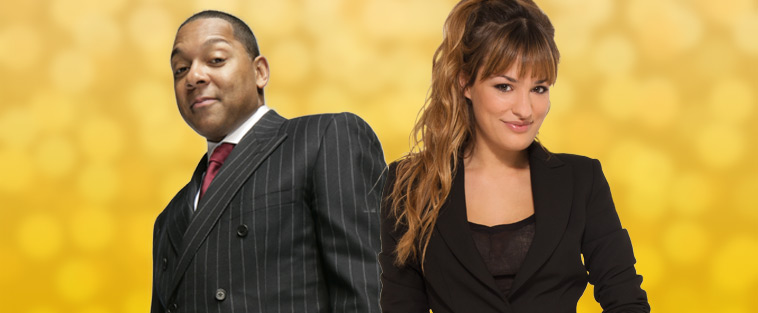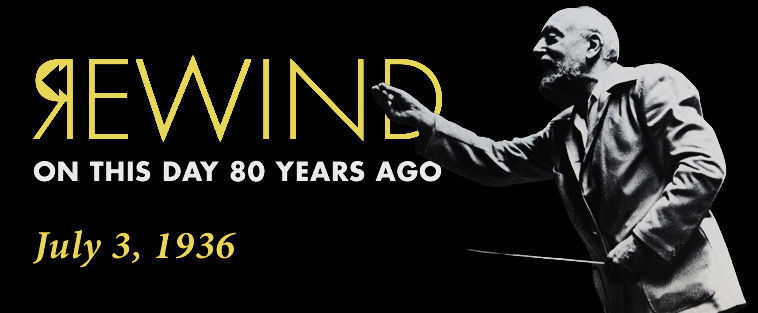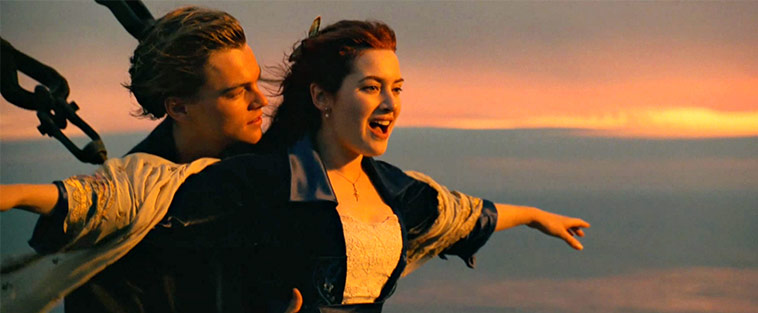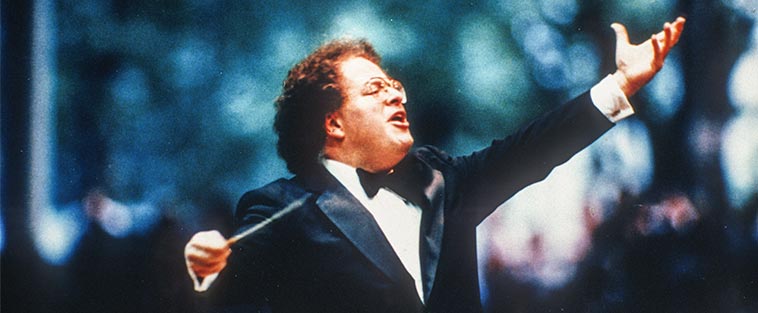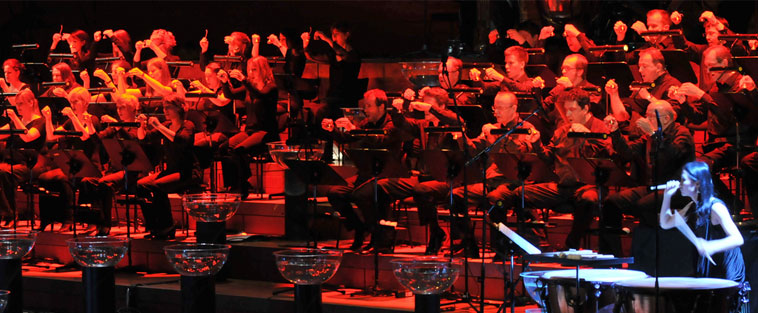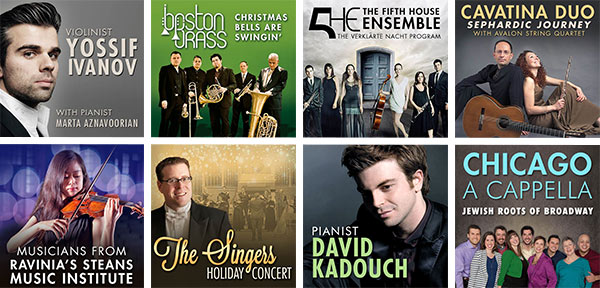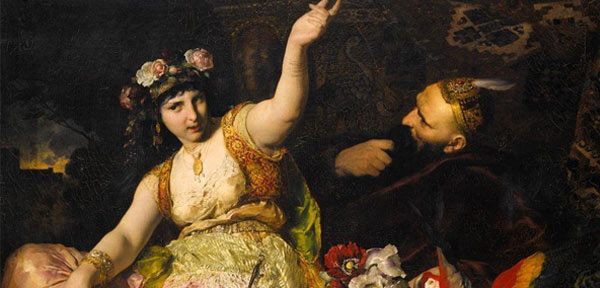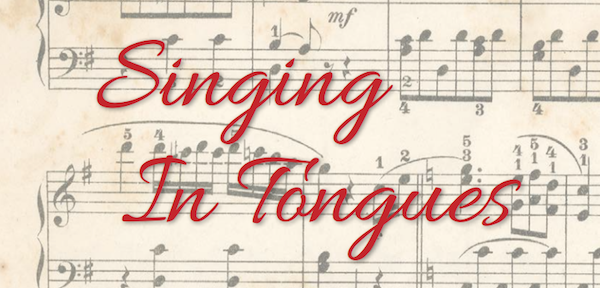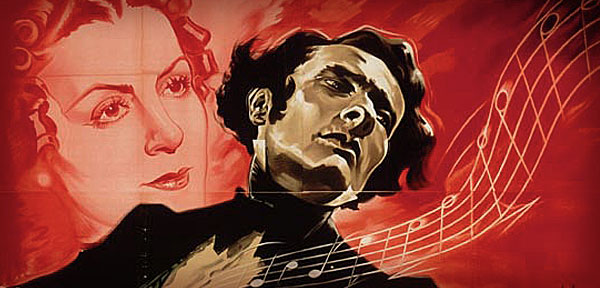Legendary trumpeter and composer Wynton Marsalis has worn many musical hats across his remarkable career. Thus, the idea that Ravinia would co-commission a concerto from a guy who studied at Juilliard and performed Haydn’s Trumpet Concerto with his hometown New Orleans Philharmonic when he was a mere 14 years old is not so strange.
Classical
Rewind: July 3, 1936
July 3, 1936: The CSO Residency Kicks Off
In 1936 Ravinia and the Chicago Symphony Orchestra began an enthusiastic partnership in presenting history’s greatest music in a uniquely lush and comfortable setting, and 80 years later that dedication is as strong as ever, forming the cornerstone of the festival’s classical mission, which also encompasses chamber music, recitals, kids concerts, Reach*Teach*Play, and Ravinia’s Stean’s Music Institute. Even before the relationship became official the CSO was a regular guest, dating back to 1905 as the Theodore Thomas Orchestra. Over the 17 concerts that compose its residency at Ravinia this summer, the CSO will play works that are just as powerful today as they were during that first season—from Beethoven’s Seventh, Brahms’s Second and Fourth, and Dvořák’s “New World” Symphonies to such orchestral delights as Respighi’s Pines of Rome and Strauss’s Don Juan to the playful swirl of Gershwin’s Rhapsody in Blue.
Blindsided by "Titanic"
Sometimes the power of a film can sneak up on you and catch you by surprise. That was the experience I had when I saw James Cameron’s film Titanic—for the third time.
Ahead of His Time
By John Schauer
A long time ago, when I was working as a journalist in California, I came to Ravinia to do a feature interview with James Levine, who was Ravinia’s music director at that time, and in the course of the interview he said something that still haunts me today, as if somehow he sensed what would happen as a result of “social media”—which of course did not yet exist at that time.
Ripple, Affect: Tan Dun’s "Water Passion"
By Thomas May
In 2013 Tan Dun traveled to the Thomaskirche in Leipzig to conduct his Water Passion in the very space where J.S. Bach had introduced the Saint Matthew Passion nearly three centuries ago (most likely in 1727). The gesture underlined the kind of cross-cultural counterpoint that lies at the heart of the Chinese composer’s oratorio. The full title reads Water Passion after Saint Matthew, yet Tan also models his work on his reading of Bach’s monumental precedent; it might even be titled Water Passion after Saint Matthew after Bach—the second “after” being taken simultaneously in its dual senses of “according to” and “post-dating” (for a contemporary world).
For Artist and Audience, the ‘Cycle’ is the Gateway to Another World

The contradictions are stunning.
We are, as we’re constantly reminded, living our lives at supersonic speeds, racing in all directions. We express ourselves in 140-character tweets, fume when a computer file takes three seconds to download, and demand next-day delivery for our online orders (since shopping online is, of course, much faster than heading out to a brick-and-mortar retail store).
Yet we luxuriate in spending hours at a time on a single experience we deem worthwhile. Children, supposedly afflicted by skyrocketing rates of attention deficit disorder, devoured the very long Harry Potter books in marathon sittings. A weekend spent binge-watching multiple seasons of House of Cards or Downton Abbey is many people’s idea of heaven. Restaurants have long waiting lists of customers willing to sit for lengthy, multicourse, insanely expensive meals with menus (no substitutions allowed) set by a superstar chef.
We’re desperately in a hurry. Until we’re not.
My Love Letter to Ravinia (or That Time I Met Renee Fleming)
The Ravinia Festival is the highlight of my summers, bar NONE.
The place has such atmosphere and a feeling of joyful camaraderie you just don't get anywhere else. People sometimes feel inhibited at Lyric Opera or the Chicago Symphony. But, at Ravinia, everyone's inhibitions are released and true joy seeps out of every pore of the place.
Nicola Benedetti, Working in Concert with Wynton Marsalis
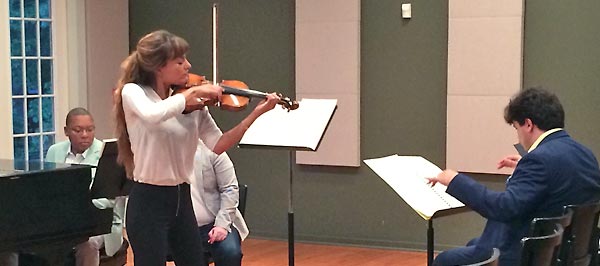 One month from today, Nicola Benedetti will be giving the world premiere of Wynton Marsalis’s Violin Concerto with the London Symphony Orchestra, co-commissioned for her by Ravinia and that ensemble, along with the Los Angeles Philharmonic, National Symphony Orchestra, Leipzig Gewandhaus Orchestra, and Netherlands Radio Philharmonic Orchestra. On the opening night of the Chicago Symphony Orchestra’s 80th-anniversary residency at Ravinia, she will be performing the American premiere of the work with conductor Cristian Măcelaru (who, coincidentally, will be making his Ravinia debut).
One month from today, Nicola Benedetti will be giving the world premiere of Wynton Marsalis’s Violin Concerto with the London Symphony Orchestra, co-commissioned for her by Ravinia and that ensemble, along with the Los Angeles Philharmonic, National Symphony Orchestra, Leipzig Gewandhaus Orchestra, and Netherlands Radio Philharmonic Orchestra. On the opening night of the Chicago Symphony Orchestra’s 80th-anniversary residency at Ravinia, she will be performing the American premiere of the work with conductor Cristian Măcelaru (who, coincidentally, will be making his Ravinia debut).Ravinia and Cuba exchange virtuosos
Nine months before Obama’s historic announcement last winter, Ravinia had already significantly connected with the government of Cuba. In March 2014 an ensemble of young chamber musicians, alumni of Ravinia’s Steans Music Institute (the festival’s summer conservatory), performed in Havana’s Festival de Música de Cámara.
“We got very lucky. We met the right people at the right time,” Plonsker elaborates. “I see Ravinia as a leader. We got there on an official basis before any other group, and we are operating at a very high level of cultural exchange.”
Ravinia Announces the 2016 CSO Residency

Though shortening daylight puts the end of summer clearly within sight, it also signals that anticipation for the next Ravinia season is beginning to grow ever larger. As the festival marks the 80th anniversary of the Chicago Symphony Orchestra’s annual residency—the centerpiece of each season—in 2016 Ravinia also celebrates the 45th anniversary of the debut of the conductor who would become the residency’s steward for 20 years: James Levine. In addition to the long-awaited return of this longtime, former music director, Ravinia also welcomes six new faces to the podium,
Ravinia's Bennett Gordon Hall Concerts Are Never Out of Season
And best of all, the series offers music lovers the chance to hear “an impressive lineup, by any standard,” (Chicago Tribune) of world-stage stars at a fraction of the ticket price commanded elsewhere.
CSO Ships Off With Timeless Stories
The story is told quite viscerally through music: a ship dripping dread appears suddenly in the darkness, ahead of a storm that portends death. Such was the setting of the final weekend of the Chicago Symphony Orchestra’s 2015 summer residency at Ravinia. Ah, yes, The Flying Dutchman. Or, wait, was it Star Trek?
How Ravinia Books Its Artists
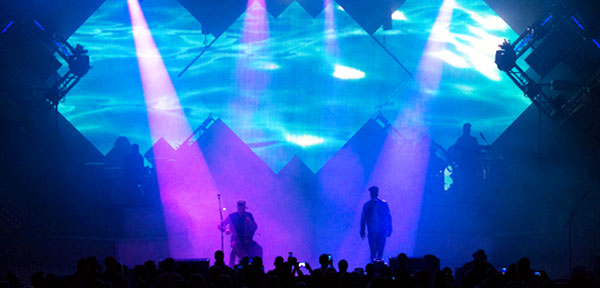
Perhaps the question I’m asked most frequently is, how far in advance does Ravinia book its artists? This one came up twice this week; oddly enough, on the Ravinia grounds. The answer is...
Taking The Flying Dutchman's Dare
I would like someday to give a lecture or write an article making a case for disliking classical music—at least some of it. I fear that people new to classical music may hear something they really detest and, not knowing the infinite variety of classical music, incorrectly conclude that they don’t like any classical music at all. But just about everyone, no matter how knowledgeable or devoted to music, must admit that there are portions of the repertoire they don’t enjoy.
In my case, there are numerous swaths of the classical repertoire that simply don’t appeal to me. Most pertinent at present, I don’t like Wagner.
A Symphony of Silk
So on ghastly summer days with 99-degree heat and 99 percent humidity, that's where I went in my imagination. Lying on my bed, I would put Scheherazade on the phonograph while nibbling grapes and sipping lemonade, as if I were the Persian ruler to whom the stories were being told. It didn't dispel the heat, of course, but somehow, in that setting, the climate seemed more natural and bearable--at least for as long as the music lasted.
Cannons and Cantabile
This Saturday is the annual Gala Benefit Evening hosted by Ravinia’s Women’s Board, which this year also incorporates Ravinia’s annual Tchaikovsky Spectacular, noteworthy to many for its performance of the beloved “1812” Overture with live cannon fire. But more spectacular to me is …
New Works Are The Passion of Five Ravinia Stars
But music is a living art. And no matter how glorious its past, in order to be fully alive, it must be constantly replenished by sounds that reflect the world as it is today, not as it was 300 or even 75 years ago. This season’s Ravinia schedule includes a range of artists who will be playing the music of the here and now as well as masters of the past.
James Conlon Sees His Time At Ravinia As A Continuous Highlight
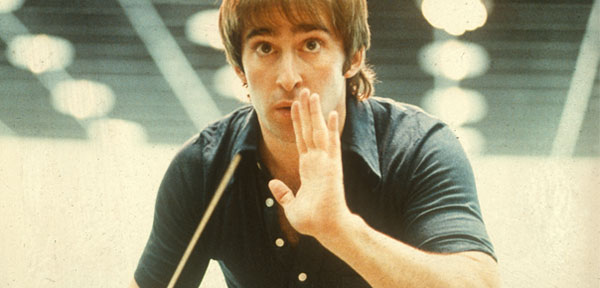
In looking back over my years at Ravinia, it is almost impossible to gather my thoughts in a linear fashion. The memories are so many; the musical experiences so rich, varied and exciting; the immense presence of the Chicago Symphony Orchestra so monumental, that it is difficult to condense into words.
Since I became music director of the CSO’s residency in 2005, I have been struck by how many music lovers I have met around the country and even overseas, who have told me that they heard their first concerts at Ravinia.
Singing In Tongues
I recently had one of those conversations that only occur between opera lovers and non-classical-music-loving friends. I mentioned having attended a performance of Debussy’s opera Pélleas et Mélisande with the Chicago Symphony Orchestra, an offering in their recent French festival. “An opera?” my friend asked, with a puzzled look. “Don’t operas have to be in Italian?”
Symphonic Shocker
To today’s audiences, who have heard nearly two centuries of music after the Symphonie fantastique received its premiere in 1830, Berlioz’s music sounds safe, melodious, beautiful, and brilliantly constructed, but nowhere near as jaw-droppingly shocking as it did to its first audience.

